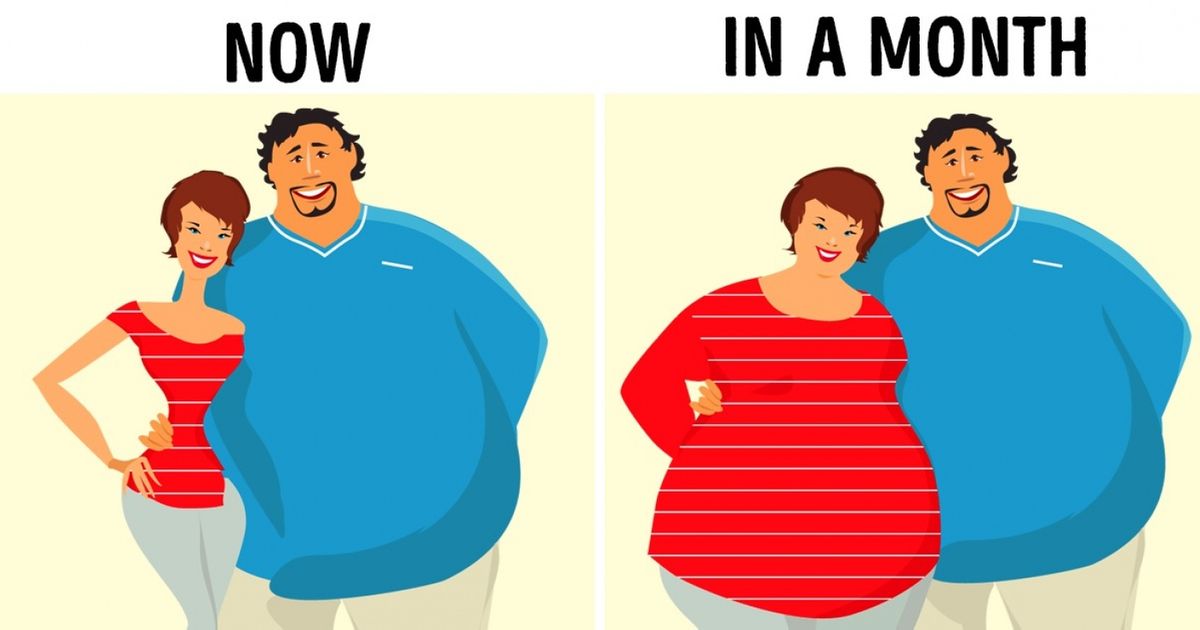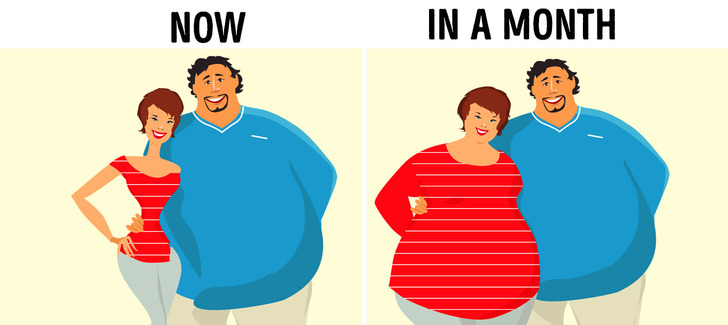My Stepdaughter Publicly Insulted Me, So I Taught Her a Lesson


Constant interaction with people with excess body weight can lead to an increase in your own body weight. Scientists from the University of Southern California claim that obesity can be contagious. And they are not the only ones.
Bright Side will tell you about several studies that prove a wisdom that’s as old as the hills. Read the article, and remember that beauty is defined by a state of mind and soul, not the weight of your body.
Researchers from the University of Southern California analyzed data from the project called “M-TEENS” with the participation of 1,111 children and their families. In general, 25% of teens and 75% of adults were diagnosed with obesity, but the results vary from one state to another. For example, in Colorado, only 21% of teens were diagnosed with obesity, but in Louisiana, this result is twice as high.
When the researchers analyzed social environment, habits, and other factors, they found out that the children whose parents worked alongside obese people were likely to gain weight much quicker. The study claims that the main factor that causes the weight gain among the members of one social group is the relationship between these members and their mutual influence on eating habits.
A wider study was conducted by researchers from the University of Hawaii. They coined the term “imitative obesity,” which means the process of imitation of people who are overweight. During the observation of 5,000 teens, it was discovered that obese teens “help” their thin friends gain weight. “If you’re going to eat with a friend who’s overweight, you’ll probably choose to eat the same food as them. This will eventually lead to weight gain,” the researchers commented.
Researchers from Harvard Medical School have made the most advanced progress in their theory that obesity can spread from person to person. They have been analyzing a group of 12,000 people for 32 (!) years and have come to this conclusion: if your friend gains extra weight, it is 50% likely that you will gain weight too.
Why are these studies helpful? Scientists think that this data can help in the development of new ways of fighting obesity. The aim would be to implement the principles of healthy eating in groups — not individually. With regard to everyday life, their studies prove an old simple truth that we all know: it’s always better to lose weight (or do anything else) in the company of friends.

What do you think about the results of these studies? Is it possible to “catch” obesity from a friend? Tell us your opinion in the comments.











